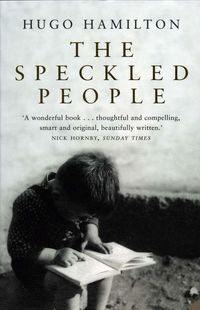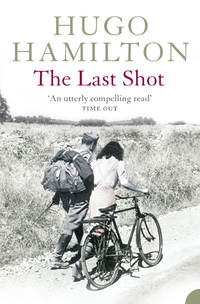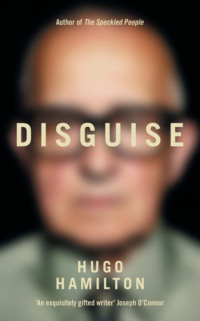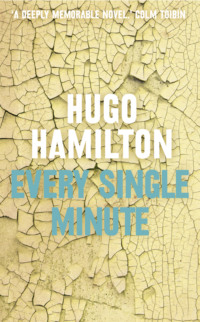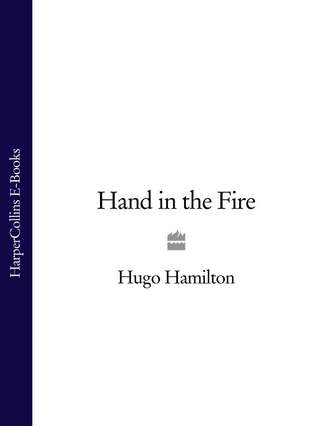
Полная версия
Hand in the Fire
‘Look, I can get a taxi,’ I said.
There were plenty of empty taxis heading back into the city centre.
‘Hang on, I’m bursting,’ he said.
His back was turned, hunched over as though he was counting out some money. Beyond him, the shutters of some shops, sprayed with graffiti. Then he spun around laughing and began to piss against the side of her car.
‘You bastard,’ she shouted.
I stood back on the pavement trying to pretend I was not part of this. I was embarrassed for her because he started pissing right across the bonnet. She was calling him a fucking animal, but I was not sure if she was really that angry and whether it might all be nothing more than a bit of fun in front of me. She must have known that he would pay to wash the car. He would even try and convince her later that it was an expression of affection. It was his trademark way of doing things in great waves of raging love and generosity. And maybe this was what she liked so much about him, his explosiveness, his talent for surprise. One day they would settle down and get married. Then all this madness would have to come to an end.
He began pissing right across the windscreen at her. She cursed again, but that only seemed to encourage him. She put on the windscreen wipers and sprayed two jets of soapy water in a counterattack, spreading the mixture of soap and piss across the glass.
Then I wondered if she was crying because she just backed down and remained silent, looking away into the street because this was not a very good sign for the future.
Was he consecrating her car or desecrating it? Quite possible that he would not be doing this without me present to witness this balancing act between them. They seemed to be appealing to me like a referee.
But who was I to judge?
Hard for me to know where the boundary lay between a joke and an insult. It was only a bit of a laugh, I kept telling myself. They have different rules here that I had not figured out yet. Or was it something else? Was he showcasing his power over her? Over me? Including me in this insane, intimate public act, but also letting me know that I had no right to take part?
A car sped past with all the windows open and three female occupants in the back seat singing along to the radio. They left a fraction of a familiar hit song on each part of the pavement, in doorways, in alleys, like cats hiding under parked cars.
And then the electrician turned up out of nowhere and pushed me against the shutters of the shops.
‘Where is she?’ he shouted.
It’s possible that he said other things. ‘You Polish bastard.’ You tend to add things in reconstruction, when it’s all so difficult to believe. The electrician seemed to think that I was alone in the street, because he began to swing punches at my head and claimed that I had abducted his daughter.
It didn’t take long for Kevin to react. He came rushing over and pulled the electrician away by the collar.
‘Get your hands off my friend.’
There was a struggle on the pavement. Not even a fight but more of a dance. Kevin kicked the electrician right in the groin and forced him to bend over, following it up with a strong punch in the face.
‘Kevin,’ I heard Helen screaming.
Maybe she thought she knew him better than that. She was tied to previous assumptions of his character, unable to understand where this violence had come from. To her it must have looked like something happening far away, beyond her control. Kevin swung the electrician around and sent him falling back against the shutters. The sound resembled the clap of a shotgun, followed by the scattering of pigeons.
I got the impression that the electrician was being lifted up off the ground. His feet were left hanging in the air. The first part of his body to land was the hip and I could hear it crack on the concrete, like a rare piece of porcelain shattering inside a velvet bag.
His head was the final part to descend, perhaps in self-preservation. There may have been another boot added at this moment, though I would still like to believe it’s not true. It was quite possible that the addition of this final kick to the head fractionally delayed it from reaching the ground. Perhaps it provided a vital alteration in the angle of fall, bringing it down to the pavement sideways, with the corner of his forehead as the last point of contact. A phase tester came clattering along the pavement.
There were several more urgent kicks to the head, but then it was over. The electrician didn’t stir after that. The whole thing lasted only a few seconds, as far as I recall. Kevin pushed me towards the car and roared at me to get in. Then he got in himself and slammed the door as if that was still part of the momentum.
‘Drive,’ he shouted.
But instead, Helen got out. She ran over to the man lying on the ground, quite peacefully. Blood had come creeping out of his nostrils. His right hand stretched out on the pavement in a begging gesture.
‘Come on,’ Kevin shouted through his teeth, getting out of the car again.
She kneeled down with some obligation to care for the man on the ground. But Kevin pulled her away, forcing her back into the car, this time into the passenger seat, while he ran around and took the wheel.
‘No,’ she said. ‘You can’t drive.’
As if being over the limit had become the main problem now.
‘We can’t just leave him there.’
The car accelerated away. I looked behind me, not sure if he was dead or alive any more. Then I heard her shouting at him and telling him to stop.
‘You’re a fucking lawyer, for God sake!’
Kevin continued driving at great speed. After a while he stopped and parked the car in a place where we were looking out at the sea. The lighthouse in the distance, blinking lazily. Some stationary ships out there, waiting to go into port on Monday morning. The usual orange necklace of city lights and a thin drizzle making it look like the ships were drifting away. We sat there breathing, listening, not doing anything but trying to sober up and figure out what to do.
‘What’s come over you?’ she said. ‘You just beat the shit out of that man for nothing.’
‘I only tipped him and he fell over.’
‘And now you’re doing a runner.’
‘Racist bastard,’ he said. ‘He brought it on himself.’
‘We have to go back,’ she said.
‘No way.’
‘You’ve got to call the guards.’
‘It was a split-second thing,’ he said. ‘I had to protect Vid here.’
There’s a pause, but it didn’t seem right to express gratitude.
Nobody moved. Each one of us trying to roll back what happened. But you might as well try and turn history into reverse. Soldiers taking crimes out from underneath their pillows and carrying them off to secret locations. Bullets popping out of people’s heads. Dead people jumping back to life and walking away backwards.
We were parked right on the verge of the quay. Any further forward and we would have ended up in the water. They would be lifting us out with a crane in the morning, out from among the floating condoms and beer cans.
‘You’ve got to be able to walk away,’ he said. ‘Big mistake to retrace your steps.’
‘Did your mother tell you that?’
She stared at him, extracting a forecast from his words, as though he had become a stranger to her.
We sat there, looking out at the black water of the port, the dark eyes of deep water staring back at us. We heard the sound of small waves going up and down the granite steps. We waited for the future to come, wondering if he was going to drive over the edge. We might as well have gone underwater as it was, driving away along the floor of the sea, through fields of brown seaweed, with mullet and luminous prawns swimming across the windscreen before us. Speeding through a silent landscape of rocks and barnacles and anchors and suspended lobster pots. I had the feeling that we were only waiting for the electrician to come and join us, limping or crawling up to the car, getting in beside me and putting his seat belt on. Dark worms of blood going in and out of his nostrils. Breathing clogging up in his chest. We would never get rid of him now, I thought. I imagined him speaking calmly, with moisture in his voice, getting ready for this long underwater journey that we were about to embark on together. ‘I was only having the craic,’ he would say, because he really wanted to be friends and keep the conversation going.
The engine started up again. I can remember thinking that he was going in the wrong direction, reversing instead of going forward. He drove in a rage once more, this time parking outside her place, rushing us away inside, into her basement apartment.
‘Stay there and don’t move,’ he said.
Then he disappeared again. We heard him walking away. Where to, we had no idea. We stood looking at each other. After a moment, her hospitality returned and she asked me to sit down.
‘I’m sorry,’ she said.
I didn’t know what to say to that.
‘I’ve never seen him do anything like this before,’ she said, more to herself.
To calm things down she started making tea. Then she put on some music. Balkan wedding music, of all things. She was trying to make me feel at home, but the music was so familiar that I was overwhelmed by homesickness and horror simultaneously.
I was instantly reminded of my sister’s wedding, the wedding that never took place because of the car accident on the way. The violence in the street had brought back everything I had been trying to leave behind. Now the music was returning me to the same fatal scene in which my parents had died, repatriating me to the country I had just escaped from. But how could I explain that to her? In any case, neither of us were really listening to the music, only staring at the floor, silently going over what had just happened and wondering what was laid out before us.
She said it was probably best for me to spend the night there and prepared a place for me to sleep on the sofa.
When Kevin finally returned, he looked at the two of us with great suspicion, as though we had been talking about him all this time.
‘What’s that music?’ he asked.
‘Where the fuck were you?’ she demanded.
It took him a while to answer. He went to the fridge first and took out a beer, then began to open it with his teeth, just to annoy her, it seemed, because she flinched and said, ‘Jesus, will you get an opener, Kevin.’ Then he took a long drink before he finally spoke.
‘The less you know, the better,’ he said.
‘I want to know what’s happened to that man,’ she asked.
‘He’s outside, waiting for you,’ he said to me.
‘Christ,’ she said.
‘Only joking,’ he laughed. ‘He’s alive and well. In the best of health, as a matter of fact.’
She turned and disappeared into the bedroom. He went in after her and they continued arguing, occasionally shouting at each other, sometimes mentioning my name.
I hated being involved in all this and felt like slipping out, making a run for it. I imagined the police arriving any minute. I even thought of leaving the money that he had given me to start the work.
They were arguing for a long while. At times they went silent, but then she raised her voice once more, calling him a thug and telling him not to touch her.
‘It’s the pissing,’ I heard him say to her. ‘That’s what’s getting to you, isn’t it?’
‘You don’t fucking care, do you?’
‘Come on, Helen. Admit it. You’re only worked up because I did a wee-wee on your car, isn’t that so?’
‘Wake up, Kevin,’ she said. ‘Think of what you have done. Assault, that’s what they will call it. You have just put your entire career in jeopardy and you think it’s funny.’
He paused. He seemed to be reflecting on what she had said.
‘Look, Helen,’ he said, finally, ‘I’m sorry for doing a wee-wee on your car.’
‘Asshole,’ she shouted.
Then he came out grinning while she slammed the door behind him. I suppose you could say it was a victory for him, sort of. Even though he got kicked out of the bedroom by his girlfriend, he was still able to claim that he had won. The world was falling apart around him, but he was happy holding on to the last laugh. He didn’t say anything more to me, just sat down in an armchair and dozed off, buried in sleep with a smile spreading across his face.
6
Next morning he stood above me with the sun behind him, ready to leave. He had a glass of water in his hand, which he drank down and put on the table with a clack, the equivalent of saying, ‘Come on, let’s go.’ There was no looking back. No retracing steps. No time to reflect on what had gone by.
‘Mental, last night,’ he said.
I couldn’t make out why he was not more concerned. But this was a new day and it was time to put everything behind us. Within minutes I was sitting in his car, speeding over to his mother’s house.
‘Listen, Vid. What happened last night – don’t give it another thought.’
My reading was that these things never go away.
‘I work with them,’ I said. ‘They know me, those guys.’
‘He’s not dead,’ he said with great confidence. ‘There’s nothing to worry about.’
‘What if they go to the police?’
‘You’ve done nothing against the law, Vid.’
‘Yes. But what about you?’
‘Look. This is important,’ he said, pulling in to the side of the road for a moment. ‘You cannot mention my name. I can’t be dragged into this.’
He had done me a favour and now it was my turn to return the favour, to put my hand in the fire for him.
‘You’re doing a job at my mother’s house, that’s all you have to say. If they come looking for information, you call me. Say nothing. They cannot force you to answer any questions until you have your solicitor present. You understand that?’
He drove on with the windows open and his elbow out, coaching me, assuring me that everything would be fine.
‘You remember nothing, right?’
He smiled at me, placing his hand on my neck.
‘OK, my friend.’
We were tied to each other now, though I couldn’t work out whether he needed me or whether I had become a dead weight around his shoulders.
He stopped to buy a newspaper, flicked swiftly through the pages, then showed me a small report on the incident which described the victim as a man in his early sixties who was the subject of a serious assault. He was recovering in hospital and the Garda were appealing for witnesses. They were looking for two attackers, believed to be non-national, of Polish extraction.
‘They have it all arse-ways,’ he laughed, throwing the paper into the back seat.
As he moved on again, I noticed that he had time to examine every woman we passed on the street. He spoke quite openly about what he liked and disliked, what turned him on and what he would never touch in a million years. He started telling me about his life, about Helen, about his family. Disposing of his biography, so to speak, in a single breath, like something he needed to leave behind rather than something he had grown into over the years.
I heard somebody once say that your childhood runs after you like a little dog. He started telling me things about his family that he wanted to get away from, confiding in me as an outsider who could be trusted, knowing that I would keep it all to myself.
His parents had met in London. They were probably hippies who couldn’t find enough drugs and rock music in Ireland and left the country. They were the last generation to leave on the boat, he explained, before cheap flights took over. People who felt stifled and compelled as much by the habit of leaving as by the excitement of arriving anywhere else. It was in the blood. They just did what so many did before them. He began his life growing up in England and only returned when he was around nine years old. With the troubles going on in the North, he explained, and the mistrust of Irish accents on the streets of London, his mother decided to make a go of it back in Dublin. Over the years, he had lost any trace of his English accent. And maybe this was why he understood my position so well. At school, he learned what it was like to be excluded and tried to mix in and camouflage himself. He did his best to be Irish. He was aware of the inadequacies that come with being a stranger and denied the early part of his own childhood, ignoring the dog running after him.
‘Never look back, my friend.’
He would repeat this phrase many times more. It was inscribed on every thought, on every decision he made.
‘You’ve got to be able to walk on out of it,’ he said. ‘Believe me. You can’t let yourself be dragged down.’
He was speaking out of my mouth, as they say. I agreed with everything he said for my own personal reasons, which had all to do with leaving and never going back again. He must have seen something in my situation that could perfectly explain his own, the story of his life described in mine. Like me, his aim was to escape. Only, he made it look like fun. All the bad things erased. Everything full of optimism and enterprise. Everything converted into a laugh. You could tell what made him so attractive to women, for instance, not only his striking good looks but also his ability to magnify the world around him into a great story.
His mother’s name was Rita, and right from the beginning I could see that he adored her. She was a born schoolteacher and you could hear the chalk grinding when she spoke. Her word was always final, with no remission. End of story. She had seen everything in life, including drugs and sex and anything young people could invent. It was all being repeated over and over down through the generations, just a new treatment, new lingo, new energy and new boredom. She took in the news and current affairs as though she could see it all coming. She reacted in the same way to her own misfortunes with stoic detachment, as though they were happening on the far side of the world.
He told me that she had a long memory. If you did something to her, she would never forget. For example. His little sister was initially called Eilish, after his aunt Eilish. But there had been a falling out, something unforgivable was done, and his mother changed the baby’s name to Ellis.
He said his father was a ‘waster’ from Connemara who had ‘fucked off’, leaving Rita to bring up three children on her own back in Dublin. She’d had the good fortune to inherit a house and was helped out by her brother, a priest, but it had not been easy to keep the family going. His father was the classic emigrant, the person who walked away but kept on singing about going home.
‘Homesickness,’ he said. ‘It’s like a disease. A psychiatric condition that people used to pass on to their children at birth.’
He could remember his father coming back from time to time on a visit. The family had tried to make a go of it once when Kevin and his sisters were small, but he left again, back to London. Kevin could recall him singing with his eyes closed. Speaking the old language, talking in Irish to his friends. But then he finally disappeared for good. The only contact after that was talking to him on the phone once or twice, before the money ran out in whatever coin box his father stood in. The line would go dead and all he would hear was the crackle of the rain on the other side.
‘Thing of the past, really,’ he said. ‘Homesickness. All that seeping nostalgia. It’s like polio. Or tuberculosis. Very rare these days.’
His father had written himself out of the family history. I was being written in. And maybe that’s what I longed for most, to be pasted into the family scrapbook, whatever the consequences. He was claiming me as his friend, offering me this precious information, but also conscripting me as a foot soldier, sworn in by an unspoken oath of loyalty.
When we arrived at the house, he introduced me to both his younger sisters, Jane and Ellis. His mother made a pot of tea and put some fresh scones on the table for us. I felt more like a guest than a worker. Kevin gave them my biography so as to avoid too much interrogation from his mother. Belgrade, parents died in a car crash, memory loss after the accident, came to Ireland to get a new start. No further questions.
‘Tragic, what happened there,’ his mother said, being polite.
Then he disappeared again and I began working upstairs in the bedroom. First of all I smashed up an ancient free-standing wardrobe which was listing to one side. I stacked the broken pieces in the back garden to be used for firewood. After that, I ran around to the local building supplier’s to collect some batons so I could start framing up for the new wardrobe, which was simple enough. It was not such a big job. The black ash panels were to be delivered during the week. I reckoned the whole thing would not take much more than a week or two in my spare time.
Later, while I was fixing the batons to the wall, his mother brought me a mug of tea and some biscuits. She was curious to see how I was getting on. And when I was finished, I made certain to clean up after myself, so that she would not end up walking on splinters in her bare feet at night. I brought the plate and the mug back down and placed them in the sink.
‘You’re a bit of a perfectionist,’ she said to me. ‘I can see that.’
‘Thanks,’ I said.
‘Not often you get that around here.’
‘Ah well. I do my best, I suppose.’
She owned a collection of tin, wind-up toys. A little boy on a bicycle. A duck on wheels with a windmill on his head. Tin mice. Tin frogs leaping and a tin carousel with tin children swinging. She showed them to me and allowed a few of them to spin around the kitchen table. I had to stop the duck on a bike from falling over the edge. We got talking, because these toys were not sold in the shops here on safety grounds, because of the sharp metal parts, bits of blades bent over to hold them together. But they were still found in markets and shops all across Europe where I come from. For adults only. Parental guidance, that kind of thing. I promised her that if I was ever back home in the near future, I would buy her one to add to her collection.
During the following week, I worked away at the shelving and began to discover a little more about the family. I’m not the kind of person who pries into other people’s business. I’m quite discreet. I do my work sort of blindfolded, you might say. But when you’re in somebody else’s house, you can’t help noticing things.
In the bedroom, her stuff was all temporarily stored on the floor. It wasn’t just a wardrobe she was after but a place to keep her documents. They were stacked up on top of each other against the bay window in boxes and large envelopes and folders tied with ribbon. Bits of newspapers from another time. Photographs. Wedding albums. All the evidence of her life, which she possibly didn’t want to look at very often but slept with every night, alone in the same room. It was now exposed on the floor, waiting to be put away again as soon as I had the new wardrobe finished.
I didn’t look at any of her personal things. I swear, it’s not like me to do that. But one evening, a bundle of letters fell down. The ribbon around them must have come undone and they were scattered all over the floor. It looked as if I was nosing through her stuff, and I had no option but to pick them up and put them back so they were in exactly the same order, as far as possible. Letters with her name on them. Rita Concannon. His mother came from the time of letters, before all the new technology took over. Even though she still looked quite young, the letters seemed to put her way back into an ancient era of handwriting and lots of time between things being sent off and delivered.
The letters, I could not help noticing, were sent from England, all sealed, all unopened, all unread.
What is it about letters in this country? I asked myself. An email or a phone message could be easily ignored. But letters seemed to have such substance. They were real. You could hold them in your hand, as I did, briefly. I wanted to know more about the person who sent them. I wondered if they had come from the absent father, the man who had excluded himself from the family. What terrible words did they contain and why were they never even opened? All those far-away things inside your head that can only be written down in a letter.



